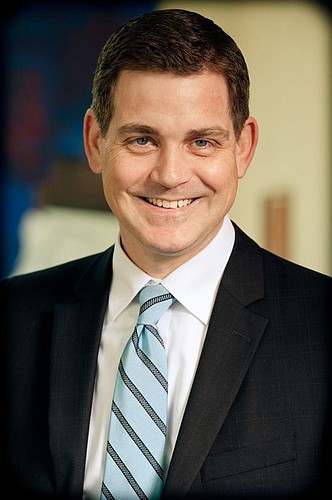
There is newfound harmony between the city and Jacksonville Symphony Orchestra.
Days after the orchestra’s president shared concerns over the city’s push to increase ticket fees on publicly owned entertainment venues, there’s been an understanding that could lead to the bill being voted on Tuesday.
That legislation, submitted by City Council member Bill Gulliford, in part will increase ticket fees at the Baseball Grounds of Jacksonville, Veterans Memorial Arena, EverBank Field and Times-Union Center for the Performing Arts.
The latter has been home to the symphony since 2001, with the city and organization reaching a five-year extension this summer.
Gulliford’s bill bumps ticket fees for the arts center, arena and non-Jacksonville Jaguars games at EverBank from $1 to $2.50 and the baseball stadium from 50 cents to $2.50. Events at the new amphitheater will have a $2.50 fee. The fee for Jaguars tickets remains $3.25.
Money raised would go toward capital maintenance and improvement on those public buildings.
Robert Massey, symphony president and CEO, was apprehensive when he spoke to a council committee on Monday. It’d impact the bottom line if the symphony continued to absorb the costs or hurt attendance if it was passed on to customers, he said.
After a Tuesday meeting involving symphony board members and leadership along with city officials, Massey said everyone is on the same page.
“Nobody wants to do anything that would cause financial penalty to the symphony or patrons,” he said Wednesday.
One idea Massey pitched in a letter to council members was for the symphony to be exempt. Another solution he pitched was for the city to spend $5 million on capital improvements to the building.
On Wednesday, Massey said the increased fees are a way to show the city is committed to making those much-needed capital improvements.
A submitted priority list is headed by HVAC repairs and maintenance, which Massey said impacts artistic quality.
The failing system blows cold air on the performers and instruments, which impacts their pitch and can damage them.
There have been times, he said, when rehearsals have had to be postponed until temperatures reach certain thresholds required by the performers’ contracts.
Another project at the top of the list is the hall itself. Massey said the sound quality is excellent with the exception of on stage. An open area above the performers has lights and a catwalk, with sound becoming trapped in the spacious overheard affecting communication and harmony below.
Massey in his letter projected those two projects together to cost $1 million to $3 million. In all, the list comprises a maximum of about $5.7 million in projects.
And that’s where the understanding comes in from the symphony’s side.
“Knowing it’s going to the building, I think our patrons will be understanding of that,” said Massey. “I think the community will be appreciative.”
Gulliford on Wednesday said one idea floated at the Tuesday sit-down was to possibly boost the speed of those projects in a funding partnership with the symphony. If, for say, the organization could raise half the money, the city could more quickly dedicate capital dollars to get those projects completed.
Massey said the idea was very preliminary, but could be a “win-win for everybody.”
In his address to the Neighborhoods, Community Investments and Services Committee on Monday, Massey noted the symphony has been picking up the tab on the $1 fee meant for customers. And with the lease being renegotiated over the summer, the organization has been able to build a surplus this year to extend its season by three weeks.
The fee’s impact, if it goes into effect Jan. 1, wouldn’t affect that — tickets already sold for events would be grandfathered in.
However, it would impact the symphony’s budget the following year. Massey said there would be internal discussions on whether the symphony could swallow the fee, pass it on to customers or some combination. If so, the cost would jump from $90,000 to about $150,000.
Given the success and momentum the symphony has been experiencing the past year or so, Massey said if ever there was a time to implement such a fee change, it’s now.
“We left feeling there was a sense of spirit,” he said of Tuesday’s meeting. “We are comfortable now with how the ordinance is proposed.”
The Finance Committee on Wednesday approved the measure, leading Gulliford to say he’ll seek to have it discharged from the NCIS committee and voted on Tuesday night at the full council meeting.
@writerchapman
(904) 356-2466